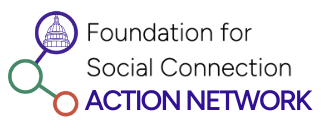By Maggie DeCosse, Policy and Communications Intern at ACTNow for Mental Health
The COVID-19 pandemic has been isolating for everyone, with much focus being given to its effects on children and the elderly. ACTNow for Mental Health (ANMH) aims to shine a light on the mental health needs of those aged 17 to 32, a group often overlooked during discussions on mental health. Individuals in this age group typically find themselves in a formative period full of major life transitions that can lead to isolation.
In the first two years of the pandemic, those on the younger side of our target age group may have been leaving home for the first time to go to college. However, with most colleges moving fully online for the first two years of the pandemic, incoming freshmen didn’t have the foundational experience of meeting their roommates, joining clubs, rushing a sorority or fraternity, meeting their professors in person, attending internship fairs, and other exciting activities that come with starting college. Did it matter that these experiences didn’t happen for them until they were in their twenties? A study published in 2021 reviewed the mental health effects of the pandemic in a college age group. The research indicates that the prevalence of moderate to severe anxiety increased from 18.1% before the pandemic to 25.3% after the pandemic, and the prevalence of moderate to severe depression increased from 21.5% to 31.7%. Speaking from my own perspective, being limited to only connecting with my peers and professors online for the first two years of college would have stunted my experience. While the college experience of many young adults was impacted by the pandemic, not all young people attend college after high school graduation. Some may enter the workforce, start programs at vocational schools, or participate in other opportunities. The contracting economy meant that there were fewer jobs available to those seeking employment in the early years of the pandemic, leading to isolation for this group as well.
Those in their twenties and early thirties are also in a developmentally important stage of life, making them vulnerable to the mental health effects of isolation. Adults in this age group are often beginning their careers, entering graduate programs, getting married, and having children. They are grasping what it means to be an adult, and forming long-term relationships. Luckily, Gen Z and Millennials are the most adept at technology which can have protective effects on loneliness and isolation. Throughout the pandemic, I’ve witnessed weddings take place over Zoom, birthdays celebrated from afar with friends, and I attended my own school reunion online. Despite being in an online format, these events all allowed us to feel more connected from the confines of our homes.
ANMH is dedicated to expanding mental healthcare services for those 17-32 and reducing stigma around accessing care. The “ACT” in our organization’s name stands for Advocacy, Compassion, and Treatment. While ANMH generally focuses on mental health, these actionable words can be used to combat social isolation and loneliness specifically. Reducing social isolation and loneliness requires advocating for policies. Similarly, compassion is needed when we encourage people to reach out to each other for check-in or participation in social activities. Finally, the mental health effects of isolation should be addressed through treatment.
ANMH is committed to expanding access to care. Fundamental to the organization’s mission is focusing on communities that have been historically underserved by the health system. Historically marginalized groups are particularly vulnerable to the effects of isolation and loneliness. Lower-income people experience greater isolation than higher-income people LGBTQ+ youth are twice as likely as their non-LGBTQ+ peers to feel lonely. People with disabilities experience loneliness and social isolation at higher rates than those without a disability. Veterans who experience loneliness are more likely to experience depression and suicidal ideations. Some Latinx immigrants are at an elevated risk of experiencing loneliness due to a separation from their social networks.
While loneliness and isolation have reached epidemic levels, we can all do our part to help those who are isolated feel a sense of community and belonging. The work that organizations such as the Coalition to End Social Isolation and Loneliness is doing to raise awareness about this issue is essential.

